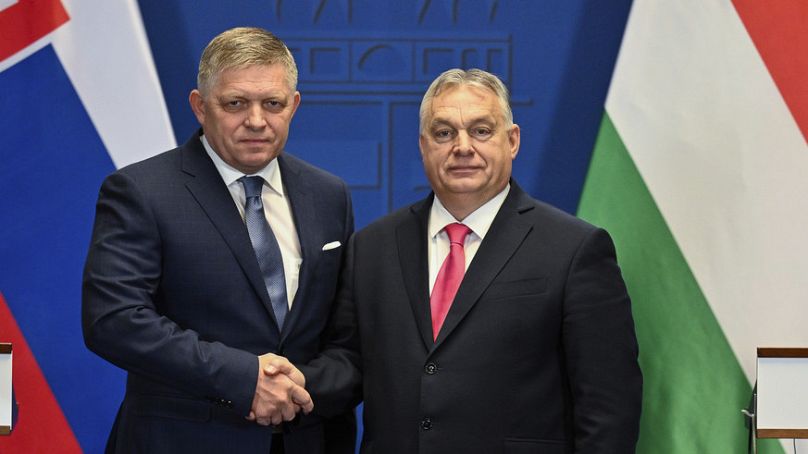Slovakia's draft language law sparks fears over rights of Hungarian minority

A draft Slovak law that would crack down on the use of minority languages in public has raised concerns about the rights of the country's Hungarian population.
The proposed amendment to Slovakia's existing language law states that Slovak text must appear first on public signs and advertisements, and that minority languages would be prohibited on public transport and in places such as post offices, according to local media reports. People who fall foul of the legislation would face fines of up to €15,000.
Slovakia adopted a similar amendment in 2009 that made Slovak the mandatory language for civil servants, leading to a diplomatic row with Hungary.
The two ex-communist states have repeatedly clashed over how Slovakia views and treats the Hungarian minority, yet relations between the NATO and EU members have improved recently due to the similar nationalist stances shared by Hungary's Prime Minister Viktor Orbán and his Slovakian counterpart Robert Fico.
Slovak opposition lawmakers and human rights experts have said that this latest proposal is stricter than the 2009 amendment, and are concerned it could hurt businesses, reduce the country's competitiveness and attract criticism from the EU.
"The amendment to the language law drafted by the Slovak Ministry of Culture is absurd, it is directed against the Hungarian minority and is taking Slovakia back to the 1990s," René Parák, an MP for the Freedom and Solidarity party (SaS), said in a recent press conference.
"This law, steeped in nationalism, has often restricted and still restricts the rights of the country's population to freely disseminate and receive information in their mother tongue, and it also restricts the freedom of entrepreneurship," he said.
Slovakia's Culture Minister Martina Šimkovičová — of the Slovak National Party — has reportedly dismissed such concerns, and said that the draft amendment would "consolidate the status of the state language and guarantee efficient state control".
Hungary's Foreign Minister Peter Szijjártó told local media that he had spoken to the Slovak Speaker of Parliament Peter Žiga and received reassurance that any amendment to Slovakia's language law would not affect the rights of the country's Hungarian minority.
Hungarians account for about 8% of Slovakia's 5.4 million population, making them the nation's largest minority, according to the latest census data. Budapest ruled over Slovakia within the Austro-Hungarian empire until its break-up after World War I.
Slovakia's populist PM Fico returned to power for the fourth time last year after his leftist party Smer won parliamentary elections on a pro-Russia and anti-US platform.
Fico's stance on Russia's 2022 full-scale invasion of Ukraine — he ended his country's military aid for Ukraine and opposes EU sanctions on Moscow — aligns him with Hungary's Orbán, and the two leaders recently called for more EU funding to tackle illegal migration.
Today


